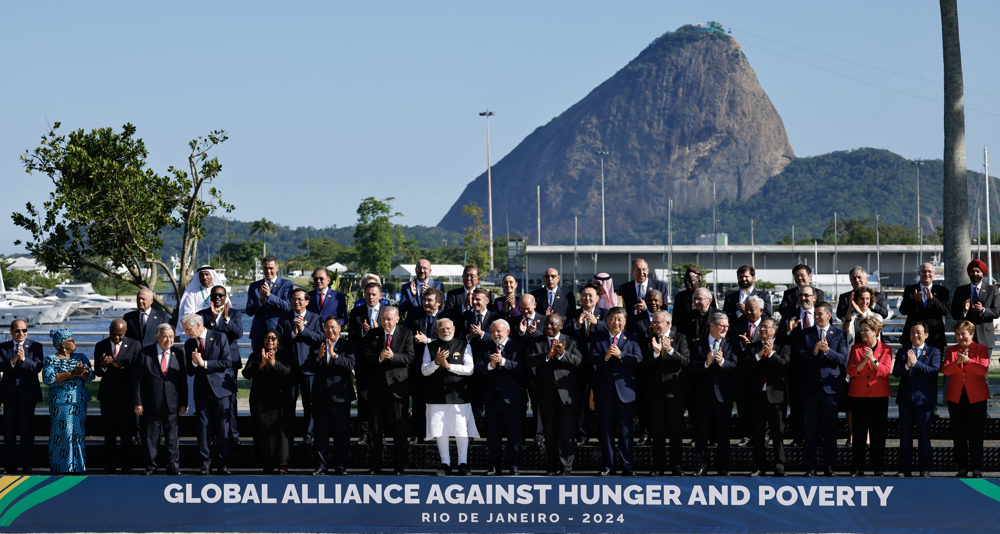Brazil’s president calls meat scandal ‘an embarrassment’
President Michel Temer called Brazil’s scandal over the sale of expired meat ‘an embarrassment’ Tuesday as more countries suspended some meat imports from the South American nation.
On Tuesday, Hong Kong, Japan and Mexico announced that they were halting at least some Brazilian meat imports. They joined the European Union, China and Chile, dealing a major blow to the struggling economy of a country that is among the world’s largest exporters of meat.
Temer sought to play down the scandal, calling it a “fuss” and noting that only three of the more than 4,000 meatpacking plants in Brazil had been forced to close. But he acknowledged the case has caused “an economic embarrassment for the country.”
Brazil’s trade associations for beef, pork and poultry producers warned that the scandal could have a big effect on employment and the economy because the sector represents 15 percent of total exports.
So far, Brazil’s government has barred the exports of meats from 21 plants being investigated, but that has not fully allayed concerns of the countries it exports to. Sales for internal consumption in Brazil are not affected.
Meanwhile, the US Department of Agriculture said in a statement that it had instituted testing of all Brazilian shipments of raw beef and ready-to-eat products for pathogens and had increased the examination of those imports.
Brazil did get a small reprieve on Tuesday, when South Korea decided to lift a ban it had put in place on chicken products from BRF, one of the companies involved in the scandal. It said it will continue to strengthen inspections on Brazilian imports, however.
Despite the about-face, supermarket chains in South Korea were pulling Brazilian chicken products from the shelves Tuesday.
‘Meat problems not widespread’
Meanwhile, Brazil’s federal police and the Agriculture Ministry said late Tuesday that sanitary and corruption problems found in the nation’s meatpacking industry were isolated incidents, an attempt to tamp down a scandal that has led the Latin American nation’s biggest export markets to ban its meats.
“While the investigation by the federal police aims to uncover isolated irregularities in the sanitary inspection system, the facts are directly related to deviations of professional conduct practiced by a few workers,” the joint police and Agriculture Ministry statement said. “They do not represent a widespread malfunction of the Brazilian system.”

BRF and JBS, the world’s biggest meatpacking companies, are among dozens of firms targeted in the police investigation. Both companies have denied any wrongdoing.
The meat investigation by Brazil’s federal police comes amid a massive three-year investigation into billions of dollars in political kickbacks paid by construction giants to win contracts with state-controlled firms, especially the oil company Petrobras.
That probe has ensnared scores of top politicians, including several ministers in Temer’s center-right government.
Following a two-year investigation of the meatpacking industry, police have accused more than 100 people, mostly health inspectors, of taking bribes for allowing the sale of rancid products, falsifying export documents or failing to inspect meatpacking plants at all.
In a bid to assuage concerns, Agriculture Minister Blairo Maggi donned white overalls and a white hood to inspect a poultry plant in Parana state on Tuesday.
The plant is one of 21 mentioned in the police probe that has now been barred from exporting meat, though its poultry is still being sold in Brazil.
Praising standards at the plant, Maggi said the problems identified by police were mostly related to allegations of isolated corruption in the regulatory system and not overall unsanitary processing practices.
(Source:Agencies)
‘All wars have rules. All of those rules have been broken’ by Israel
VIDEO | Report flags India’s violation of rights of Rohingya detainees
Turkey's foreign minister meets Syria's de facto leader in Damascus
'Next to impossible' to rescue patients from Gaza's Kamal Adwan Hospital: Director
VIDEO | Vietnam current prosperity
Report blames gasoil exports for shortage at Iranian power plants
VIDEO | Hind Rajab Foundation names Israeli war criminals vacationing after Gaza genocide
VIDEO | Australians rally for Gaza ahead of Christmas festivities














 This makes it easy to access the Press TV website
This makes it easy to access the Press TV website